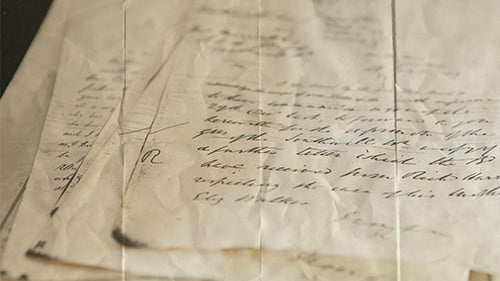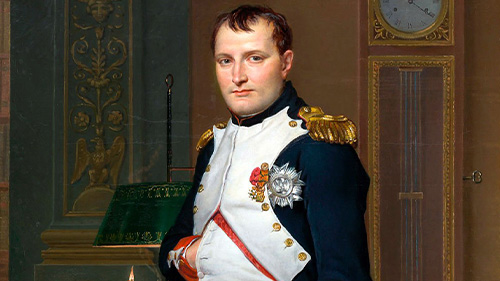Bringing Primary Sources to Life: Engaging Ways to Teach Documents Beyond Close Reading
Primary sources provide students with a personal window into the past, enabling them to view history as human stories rather than a list of facts....
AP & Honors Mathematics
Explore Wiley titles to support both AP and Honors mathematics instruction.
Literacy Skills & Intensive Reading
Connections: Reading – Grades 6–12
Empower student success with a proven intensive reading program that develops strong reading skills in striving readers.
Drama, Speech & Debate
Basic Drama Projects 10th Edition
Build students’ confidence and competence with comprehensive, project-based theatre instruction.
Literature
Connections: Literature
Support learners as they study dynamic, relevant texts and bring the richness of diverse voices to students through literature.
Literature & Thought
Develop critical thinking, reading, and writing across literacy themes, genres, historical eras, and current events.
Language Arts
Vocabu-Lit® – Grades 6–12
Help students build word power using high-quality contemporary and classic literature, nonfiction, essays, and more.
Connections: Writing & Language
Help students develop grammar, usage, mechanics, vocabulary, spelling, and writing and editing skills.
Reading/English Language Arts
Measuring Up to the English Language Arts Standards
Incorporate standards-driven teaching strategies to complement your ELA curriculum.
English Language Learners
Measuring Up for English Language Learners
Incorporate research-based best practices for ELLs with an approach that includes a focus on language acquisition strategies.
Mathematics
Measuring Up to the Mathematics Standards
Incorporate standards-driven teaching strategies to complement your mathematics curriculum.
Foundations
Measuring Up Foundations
Help students master foundational math skills that are critical for students to find academic success.
Science
Measuring Up to the Next Generation Science Standards
Give students comprehensive NGSS coverage while targeting instruction and providing rigorous standards practice.
Assessment
Measuring Up Live
Deliver innovative assessment and practice technology designed to offer data-driven instructional support.
For a better website experience, please confirm you are in:
1 min read
 John Maunu
Jan 25, 2022 1:17:36 PM
John Maunu
Jan 25, 2022 1:17:36 PM

The following lesson plan uses the historical thinking skills of comparative and cause and effect to analyze two historians' perspectives on the Rwandan genocide. Helen Epstein and Philip Gourevitch relate their perspectives about that African genocide and students are asked to analyze those points of view by noting the authors' theses and their use of evidence in support of their historical argument about those perspectives.
Those that teach AP® History and rigorous history courses understand that the national AP® exam and state social studies tests include multiple-choice questions (MC) and short-answer questions (SAQs) that use secondary sources like Epstein and Gourevitch to introduce those questions. Plus, the DBQ and LEQ also demand that students can develop a historical argument in support of a thesis. This comparative lesson module allows student to practice those skills.
John Maunu is a College Board AP® World History: Modern consultant who teaches summer workshops nationally. He is a co-moderator of the College Board® APWH: Modern Teacher Community and a Digital Resources Editor for the World History Connected Online Journal. He was an AP® European and World History teacher for many years and is currently an online consultant for AP® World History: Modern in Michigan. John has also been a Senior Reviewer and item writer for many editions of the AP® World History: Modern coursebook by AMSCO® (2015, 2017, 2018, and 2020 editions).

Primary sources provide students with a personal window into the past, enabling them to view history as human stories rather than a list of facts....

For many students, the most intimidating part of an AP® Social Studies exam isn’t the content—it’s the rubric.

In celebration of Women's History Month, explore this lesson with your students that gives them the opportunity to practice an important part of the...

As we get closer to the AP® World History Exam, students will begin to stress about the required essays they will write as part of the exam. The...

Join AP experts Brandon Abdon, Colin Baker, and Bob Topping to discover scaffolded approaches to teaching the APUSH, AP Euro, and AP World History...

When most teachers—and students—think about a DBQ, they think about writing. And yes, writing the full essay is essential. But if that’s all we ever...

This blog entry is designed to provide some hints to help your students improve their writing on the free-response section of the exam. The...

One of the best days I’ve ever had in the classroom is when we look at art.

The teaching of AP® World History can be a daunting task at times. Teachers are asked to teach over 800 years of historical content and then develop...

This interactive webinar focuses on scaffolded approaches to the finishing touches necessary for higher-level success on the LEQ and DBQ portions of...

AP Social Studies courses ask students to do something uniquely difficult: think with big,universalideas while working with very specific...

Unlock the power of historical thinking and writing as you elevate complexity and engagement in AP History classrooms. Presented by experienced AP...
